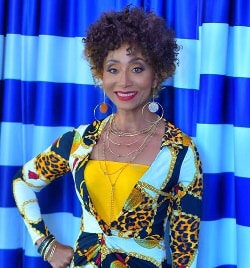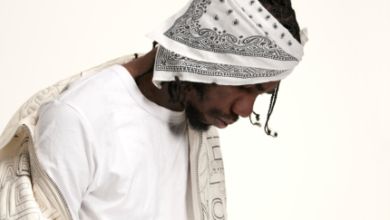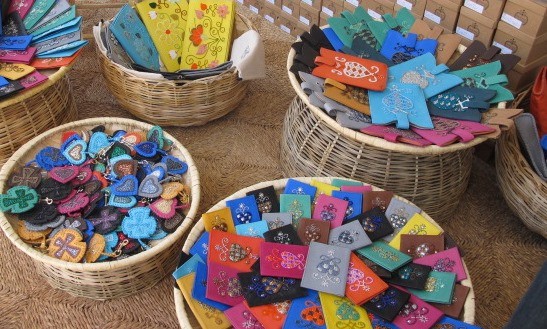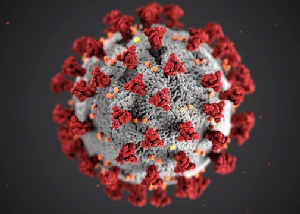American TV Host stirs up controversy about women & dancehall music
ATLANTA – Travel Channel TV host Anthony Bourdain, of the Emmy-nominated series “No Reservations,” has stirred up some controversy concerning women in relation to dancehall music.
According to ReddingNewsReview.com, Bourdain referred to women as “b***ches” when describing dancehall music in the Jamaican-themed episode of the show. It was reported that Bourdain made the following statement about dancehall, “There’s no rootsy, laid back Rasta vibe,” Bourdain narrates. “This ain’t about standing up for your rights or praising Jah or anything like that. Like Reggaetón, its mutant cousin, dancehall is the hardcore beat behind lyrics concerning, for the most part: acquiring possessions, getting respect on the street, beating down perceived enemies and enjoying the physical charms of varied, if not multitudinous, b***ches.”
Veteran Dancehall Reggae artist, Nadine Sutherland says that although she was offended by Bourdain’s remarks, she believes that misogyny has been allowed for too long in dancehall for her to be angry at him.
“I’m not going to have any self-righteous outrage at this man because that is what has been perpetuated,” she said. “Why is it that a foreigner can’t do it?”
Sutherland, whose professional career began with her signing by Reggae legend Bob Marley to his Tuff Gong record label, is commonly known for her international breakthrough with classic hits “Starvation” and “Action” with Terror Fabulous. She also judges Jamaica ‘s TV talent show, Rising Stars and her latest album, “Call My Name” carries hit singles, “Big Tingz” and “Babyface.” Nadine says although the b-word is not often used in dancehall, the music has its own brand of demeaning terms.
“There is a lovely word called ‘sketel’ and when you listen to the lyrics, ‘gyal’ is a derogatory word which can be equated as bitch,” she said. “You do have ‘She Is Royal’, by Tarrus Riley and there are conscious men, but let’s just be realistic. A lot of those lyrics have been extremely derogatory towards us women and painting a picture that the man is a prize, you fight for men and you’re basically just a senseless sexual object just like rap music.”
Dancehall and hip-hop have a similar history being born out of the social and economic struggle of disenfranchised urban poor while dancehall is the eldest of the two. Both genres have also produced collaborative projects like “Here Comes The Boom” with rapper DMX featuring Sean Paul and Mr. Vegas. In a female duet, Patra’s hit single, “Romantic Call” paired her with rapper Yo-Yo. Atlanta-based rapper, Stahhr Tha F.E.M.C.E.E. who is African American and a dancehall enthusiast says she rarely recalls the term being used in the music.
“Lady Saw and Sasha may be the only ones, but they [Dancehall artists] use other words like sketel,” she said. “I guess it’s like the n-word because if you are a woman, maybe some women feel the entitlement to use it on each other.”
For hip-hoppers, the incident is reminiscent of syndicated radio host, Don Imus who referred to the women’s Rutgers basketball team as “Nappy Headed Hos” and pointed the finger at hip-hop when defending his remarks. Imus is back under fire for comments made about suspended Dallas Cowboys cornerback, Adam Jones when asking about his race during an on-air conversation about his repeated arrests.
“I don’t blame dancehall for Anthony Bourdain’s comments,” Stahhr said. “It’s not like he doesn’t have any common sense. He used that word for a different purpose.” “I am not going to blame a genre of music that hasn’t existed for a century for a mentality that has existed for over a thousand.”
Jason Walker, who is from Kingston and host of WRFG-FM’s Caribbean Runnings has been working as a soundman in the dancehall industry for over 20 years. He says Bourdain is not equipped to tell the dancehall story.
“I wouldn’t call him a racist, but it comes from a racist place because he feels has the right to use that term and that he has that power,” he said. “His description doesn’t make room for Buju Banton, Luciano, Tanya Stephens and of course….Nadine Sutherland” “Considering where the music comes from, there shouldn’t be any derogatory comments. I think that’s where Nadine is coming from. There needs to be an honest discourse from people in the dancehall culture about the state of the music.”
The attention brought to the hip-hop industry with the Imus controversy lead to rapper Chamilionaire publicly announcing that he would remove the n-word from his music and others in the industry pledged to make similar changes. This year’s theme chosen for Hip-Hop Appreciation Week was a focus on women. Asked if Bourdain’s comments would provoke a similar conversation in the Dancehall Reggae industry, Nadine said:
“I don’t know if someone is going to have that epiphany to look at this at an individual level and have an epiphany from this episode and say: Ok, this is wrong. I have been doing this by my lyrical content to the women of my culture and somebody else outside of the culture is repeating what I have done and what I have said and I don’t feel comfortable as a person being disrespected.”
Dancehall Reggae music fans acknowledge its “slackness” in lyrical content, but also argue that some artists use the art form to advance positive messages. Dancehall artist, Assassin’s “Idiot Ting Dat” berates dead beat parents, materialism and speaks out on economic oppression.
“In terms of a galvanized movement, I’ve never seen it happen and I am not saying it will never happen,” Sutherland said. “I am praying that there will be, but am I optimistic about it? I can’t say that I am.” “I don’t know if this is a moment that will change that or even initiate dialogue, but this is indeed a moment and a lot of us can look at ourselves and see some sense of shame.”




